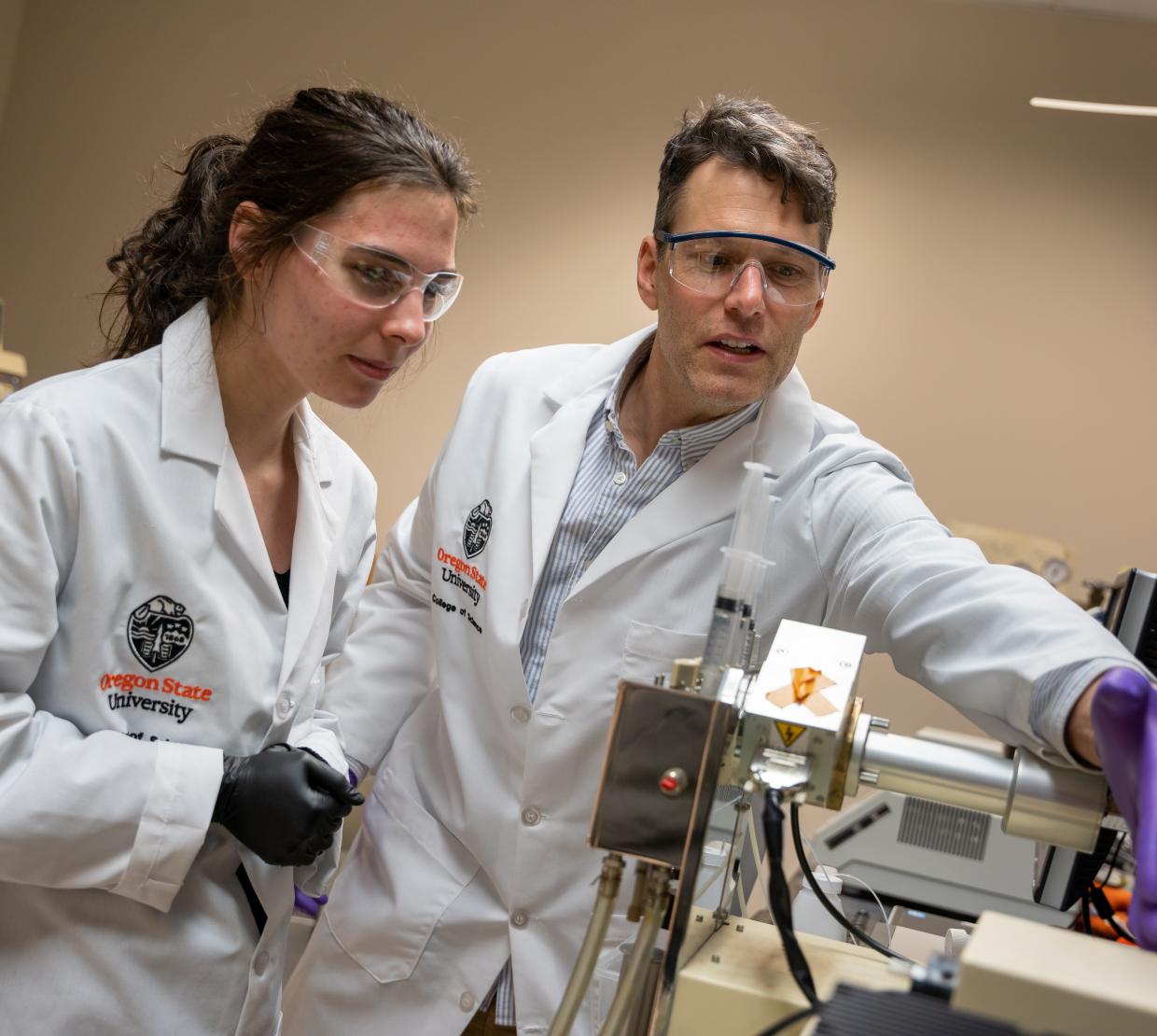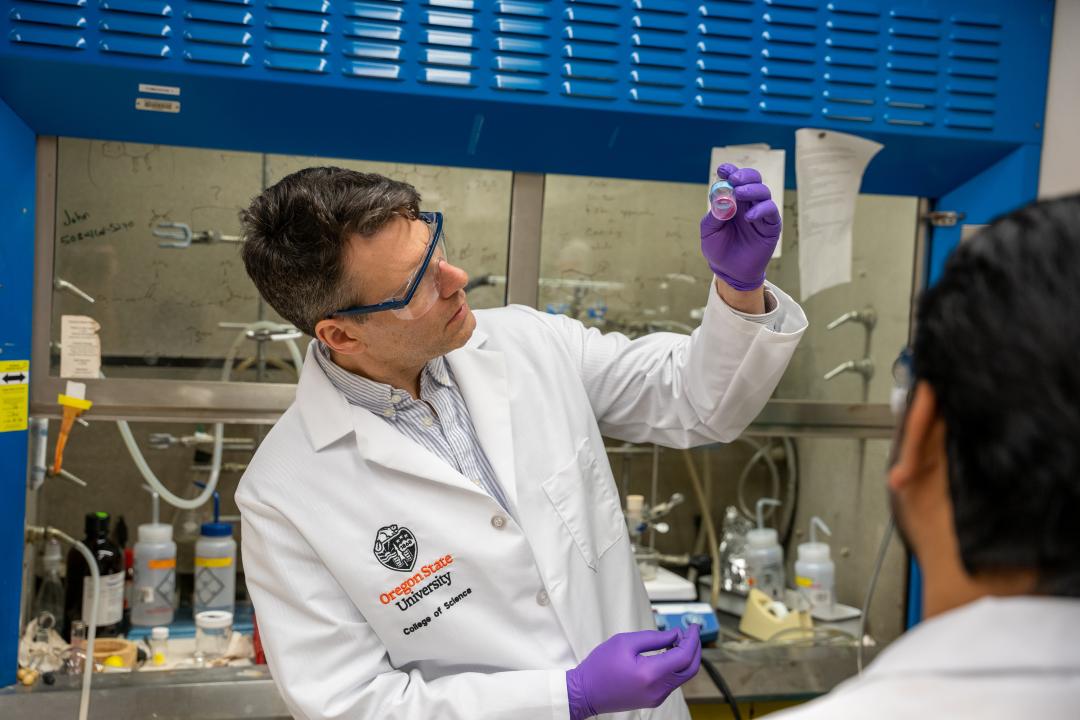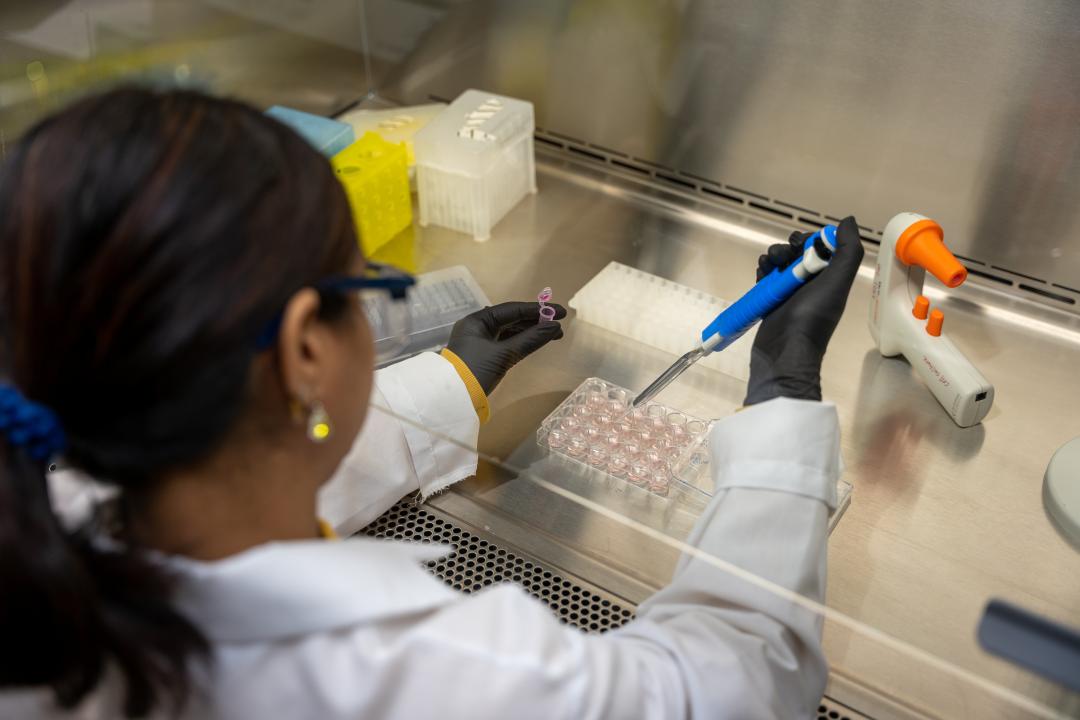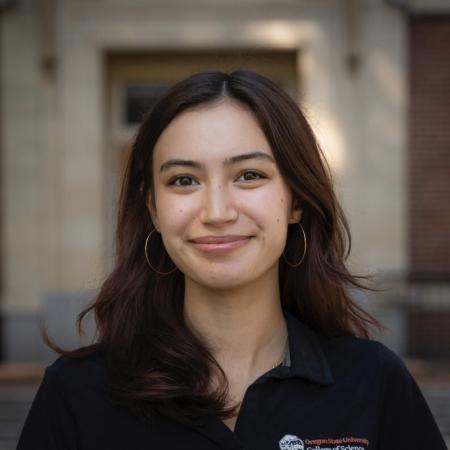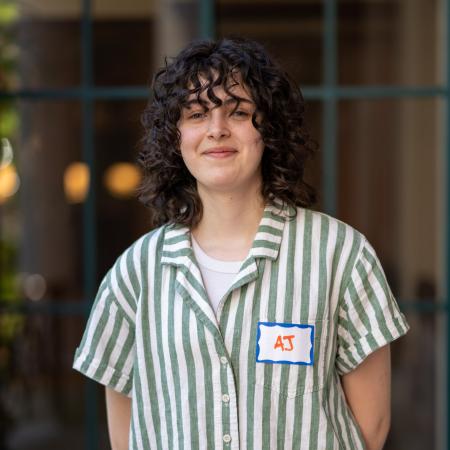For billions of years, all life on Earth, from tadpoles to humans, have relied on the same 20 amino acids to build proteins — the fundamental building blocks of life.
But what if that list of fundamental amino acids was expanded to include any chemical ability of our choosing? What new potential could be unlocked? Imagine a future where researchers can design proteins with unprecedented precision, creating targeted therapies for diseases like cancer or developing advanced diagnostic tools that can detect conditions at their earliest stages. This exciting potential is at the heart of pioneering research at Oregon State University, where scientists are working to introduce new amino acids into proteins, fundamentally transforming their functions.
The Oregon State University National Center, Genetic Code Expansion For All (GCE4All) — the world’s first of its kind — specializes in optimizing, developing and broadly disseminating groundbreaking genetic code expansion technologies.
Genetic code expansion is a cutting-edge tool that enables researchers to add new building blocks to proteins, endowing them with special features that have endless applications in science and technology.
Bolstered by prestigious grants from the National Science Foundation (NSF) and the National Institute of Health (NIH), the center is positioned to have a strong global impact, driving innovation across various fields of science and medicine.
GCE4All was selected as one of 11 national pilot projects to receive $234K from the NobleReach Foundation. In partnership with NSF, the goal of this funding is to accelerate the translation of NSF-funded research into biotechnologies and bio-inspired designs with significant commercial and societal impacts.
Led by director Ryan Mehl, the center is developing an ultrafast protein labeling system with the NSF, that targets a specific protein in live cells without compromising their function. The ultimate goal is to enhance our ability to study life at the molecular level, leading to advancements in research, medicine and biotechnology.
The center also received funding from the National Institutes of Health and Agilent Scientific Instruments to purchase a first-of-its-kind mass spectrometer. Agilent recently acquired e-MSion, an Oregon State startup that developed electron capture dissociation technology.
“Agilent technology is a sister technology that allows for the acceleration of genetic code expansion because it proves to academic and industrial partners that GCE4All is making the noble, engineered proteins we intend,” Mehl said.
